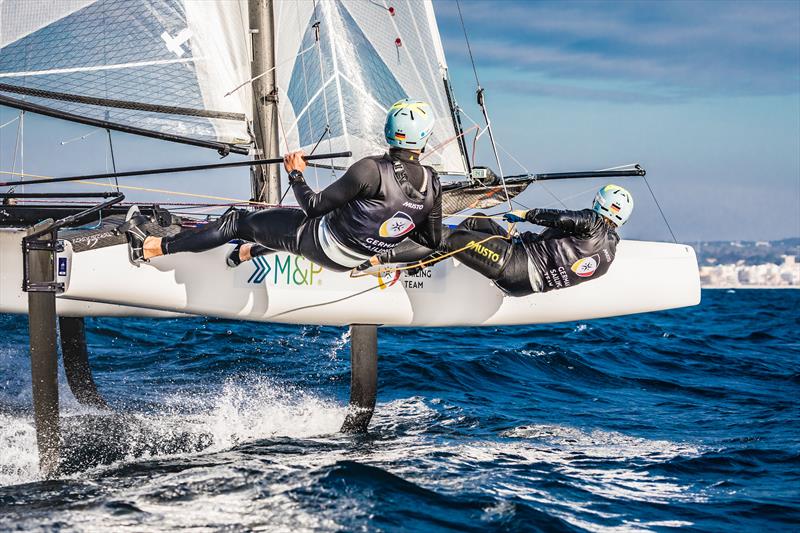
Paris 2024 : The Numbers Are In
by Cyclops Marine 24 Sep 2021 12:48 BST

German Nacra 17 Sailors training with Cyclops Sensors © DSV Lars Wehrmann
Each Olympic cycle brings something unique. Classes are introduced and discontinued, formats evolve and new stars arise through incredible dedication, hard work, and smarter training practices. One constant through every recent Olympiad, however, is the continual push towards data-driven performance analytics.
Tokyo 2021 saw Japan's Judo Federation use algorithmic formulas to rank their athletes, computer vision used in beach volleyball, and machine learning and AI employed by USA surfing. Every cycle becomes more professional and performance obsessed, and data technology spear-heads that movement.
Wearable technology is virtually universal across all events, smart watches and monitoring vests give athletes and analytics teams the knowledge of where effort is best exerted, when athletes are overworking and what statistics look like during peak-performance, giving them the increased ability to repeat optimal conditions.
In a sport where your equipment is an extension of your body, wireless load sensors do the same thing for your rig—linking your body, and all the little tells you have about which settings feel fast, and your rig where they all manifest. By providing live rig-load numbers on the water, sensors give sailors the ability to adjust sail-shape to known settings, meaning that every training session can begin where the last left off—giving them the best chance to make the most out of every minute on the water. After sailing, data can be uploaded to sailing analytics software and integrated with wind data and manoeuvre analysis to give the full picture of what's going on on the water.
Multiple Olympic federations are using Cyclops sensors as part of their programmes, and they are perhaps having the most impact as teams can get incredible value from comparing information from different boats and crews through the same system.
Teams are seeing wireless loads sensors as the next development that can give them an edge over their top competitors, but it could be that by the time 2024 rolls around most teams are utilising sensors, with just a few left behind. With this unprecedented 3-year Olympiad, every training session will need to be effective, sailors cannot lose time in their plans and the need for precise performance analysis is greater than ever—the luxury of months of baseless trial and error can not be afforded.
With Cyclops' introduction of load sensors suitable for dinghies coming in 2020, this will be the first full cycle where all Olympic classes are served by Cyclops' range of sensors, with even the fledgling Kiteboarding class catered for by the smallest sensor - the smartlink Nano.
This new development is expected to have an emphatic impact on how the next three years pan out and ultimately culminate in Paris in 2024.
Add fuel to your Olympic ambitions, contact Cyclops via email or visit their website for more information.